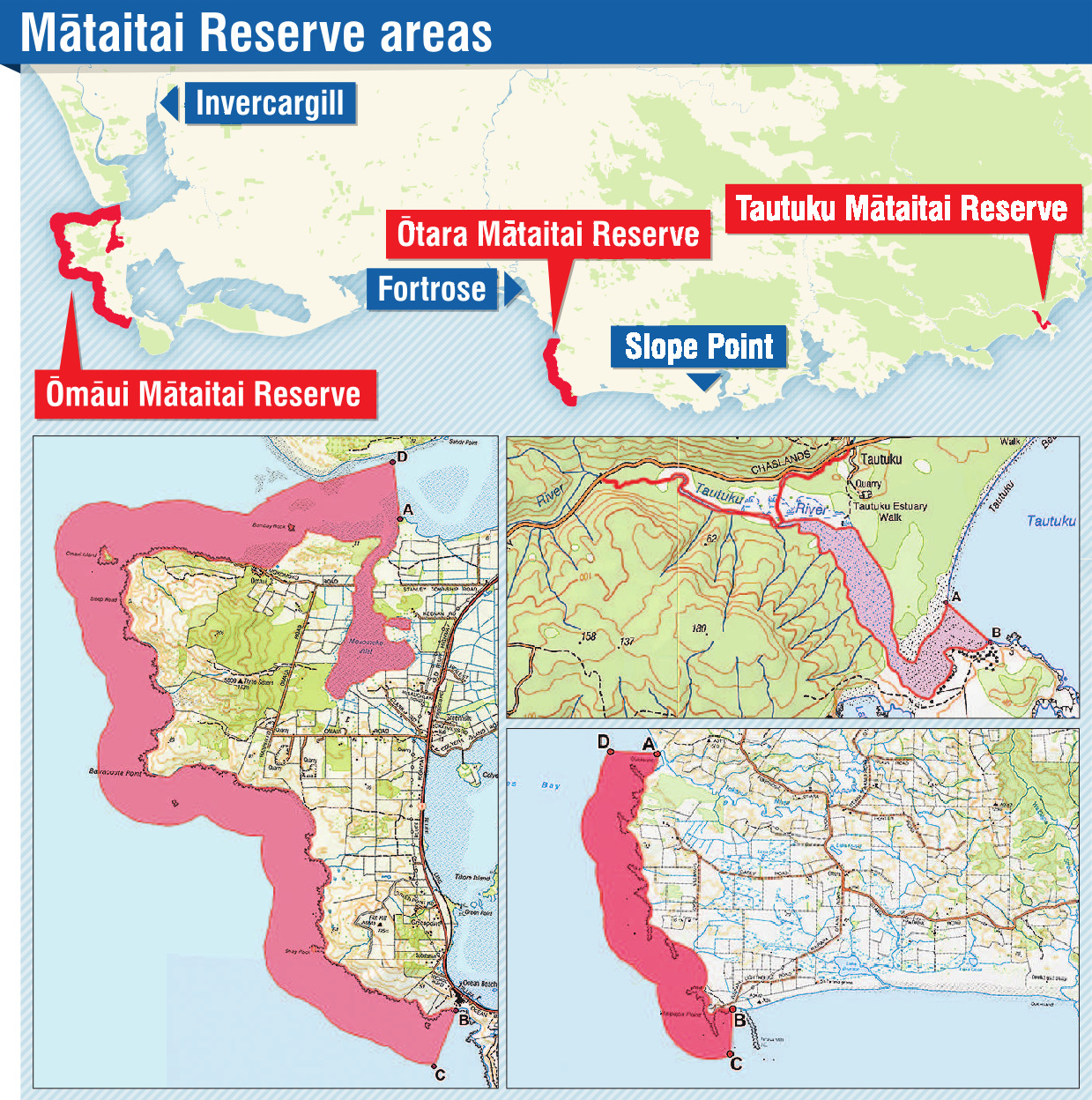
The eight mātaitai, or customary Māori fishing reserves, have been established in an effort to prevent overfishing, and will prohibit commercial fishing within their bounds when they come into effect on August 8.
The new reserves were formally notified in media yesterday following a consultation process that began in 2021, triggered by applications from local rūnanga.
Te Rūnanga o Makaawhio, of southern Westland, began the mātaitai process with FNZ two years ago, amid concerns stocks were being depleted.
Bluff-based Te Rūnanga o Awarua applied to establish the new reserves at Ōtara, Ōmāui and Tautuku, in 2019.
Mātaitai allow limited customary and recreational fishing, but usually do not allow commercial fishing. Reduced bag limits are proposed for some of the new reserves.
The three south coast reserves range from about 1sqkm to 23sqkm, the largest being the Ōmāui Mātaitai, which extends from the Mokomoko Inlet to Cable Bay, and 0.5 nautical miles offshore.
Commercial fishing for finfish species will continue at Ōmāui.
The Ōtara reserve follows the coastline from 350m north of the Tokanui River mouth to 475m east of Waipapa Point, also 0.5 nautical miles offshore, and covers 7.25sqkm.
Tautuku’s new reserve will include the lower reaches of the Tautuku River extending upstream to Chaslands Highway, and the Fleming River between its confluence with the Tautuku River and upstream to the Chaslands Highway.
In its applications to the ministry, Te Rūnanga o Awarua said the proposed reserves contained several special fishing grounds.
"[They] continue to be of special significance to us today for customary food gathering.
"The fisheries will be utilised in a conservative, sustainable manner and it is our intention to manage the proposed ... Mātaitai with the involvement of the local communities."
Te Rūnanga o Makaawhio pou ārahi (chief executive) Kara Edwards said the iwi had concerns over the state of the southwest coastal fisheries, and several species.
Longer term, they would look at introducing bylaws within mātaitai to reduce bag limits.
It would still allow people to catch what they needed for a feed, but would reduce pressure and allow fisheries to recover.
"So in the long term, everyone gets what they need," she said.
The reserves will be policed by MPI and both honorary and customary fisheries officers.












